To the Point: Mentorship engages employees and helps them feel involved, which leads to better productivity, improved performance and often, more longevity with your company.
There is no question that mentoring benefits both the mentor and mentee. The only question is, why aren’t you part of a mentoring relationship? Results of countless studies in the last decade prove that mentoring boosts bottom lines. According to a 2022 study by MentorcliQ (a mentorship software company), 84 percent of Fortune 500 companies have mentoring programs, and 100 percent of Fortune 50 companies do. Nationalmentoringday.com says 67 percent of businesses reported an increase in productivity due to mentoring, while a whopping 70 percent of small businesses that receive mentoring survive for at least five years (and often, more), which is twice as long as entrepreneurs who are not being mentored. From a purely dollars and cents perspective, mentoring makes sense. But its positive impact on both professional and personal development for individuals are even more compelling.
WHY YOU SHOULD GET A MENTOR
A Sun Microsystems study found that employees with mentors are promoted five times more often than their non-mentored colleagues. That’s a cold, hard stat. But Carmen Moore-Zeigler, Montgomery County Commissioner and President of Moore Zeigler Group, a business and technology consulting firm, witnessed the effects of mentorship up close when she ran the City of Montgomery and Montgomery County’s Small Minority Business Initiative for eight years. “Mentorship opens access to a wealth of knowledge from someone who’s already been where you are, so they can point out pitfalls,” she said. “I’ve seen the insights gained from mentors directly grow mentees’ businesses.” And she remembers and still relies on the expertise she received as a mentee. “I’ve had multiple mentors, starting with my father, but also Dr. Alfred Seawright and County Commission Chair Elton Dean,” she said. “I would not be where I am without their wisdom.”
BEYOND TEXTBOOK KNOWLEDGE
Kim Traff with Hampstead Community Realty knew she didn’t have the industry-specific knowledge she needed when she started her magazine RSVP. She sought out mentors to help, and echoed Moore-Zeigler on their value. “Ken Woodard and Karl Dabbs had years of experience that no textbook could teach me, including what not to do!” she said. “They were instrumental in guiding me on how to create a product that would set us apart from our competitors. I would not have been successful without the guidance of these incredible men.” What Traff initially believed would be a short-term relationship grew into years, and she stresses why this longevity proved key. “As unanticipated issues came up, they were great sounding boards to help me problem-solve with the confidence of their experiences,” she said. “While it is great to celebrate success together, it may have meant more to me having them to lean on during the trials.”
HAVING A MENTOR:
- Accelerates learning by flattening steep learning curves and bridging gaps in understanding.
- Provides seasoned guidance.
- Provides encouragement and support to sustain momentum.
- Brings different perspectives and fresh takes on situations or problems you can’t see past. Improves overall communication skills as you learn how to effectively communicate with your mentor.
- Increases confidence, leading to better and quicker decision making, which can prove crucial in a crisis.
- Expands your network and pool of resources as they share their relationships and contacts.
HOW TO GET A MENTOR
Not all mentors are created equal; you need the right fit. To find it, Moore-Zeigler advises considering:
- Has the potential mentor been in business long enough, and are they thriving?
- Do they have the qualities and skills or knowledge you want and need?
- Are they truly willing to share in the interest of your growth? (If not, why bother?)
“Mentorship opens access to a wealth of knowledge from someone who’s already been where you are, so they can point out pitfalls.”
Carmen Moore-Ziegler
WHY YOU SHOULD BE A MENTOR
The same Sun Microsystems study that touted the advantages of being mentored showed similar perks for mentors, namely that they are six times more likely to be promoted. And since Forbes reports that 90 percent of employees who have a mentor claim to be happier at work, mentoring can help you achieve higher worker loyalty and retention and create a more positive company culture. It pays to be a mentor and create a cycle of mentorship in your business. Moore-Zeigler agrees. “You get that warm, fuzzy feeling from helping someone else, but it’s bigger than that,” she said.
“When you help one person succeed, you help the entire community. If you want to strengthen the local economy, if you want to do something to combat crime, help small business owners and entrepreneurs by mentoring.” For Traff, choosing to be a mentor is a no-brainer. “When you meet someone committed to being better, wanting to learn more, and hoping to succeed at something you have already succeeded in, why wouldn’t you want to be a part of that?” she said. “Let’s save the hardship of hard knocks and do positive things together. Mentorship is so rewarding!”
MAKE THE MOST OF YOUR MENTOR RELATIONSHIP
Once you’ve got a mentor, the burden is partially on you to harness mentorship’s power. First, set objectives and expectations up front, so you’re both on the same page. Moore-Zeigler offered additional tips:
- Be honest and willing to share relevant information.
- Listen to their advice and follow through; at least try what they encourage you to do.
- Be open to feedback.
“When you help one person succeed, you help the entire community.”
Kim Traff
MENTORING RESOURCES
SCORE is a national organization dedicated to helping small businesses succeed using mentoring and education and has a wealth of general information as well as a mentoring “matchmaking” service, score.org. The Small Business Development Center at Alabama State University is under the umbrella of the U.S. Small Business Administration and provides free business advising, education and training. They can be reached at 334-229-4138.






